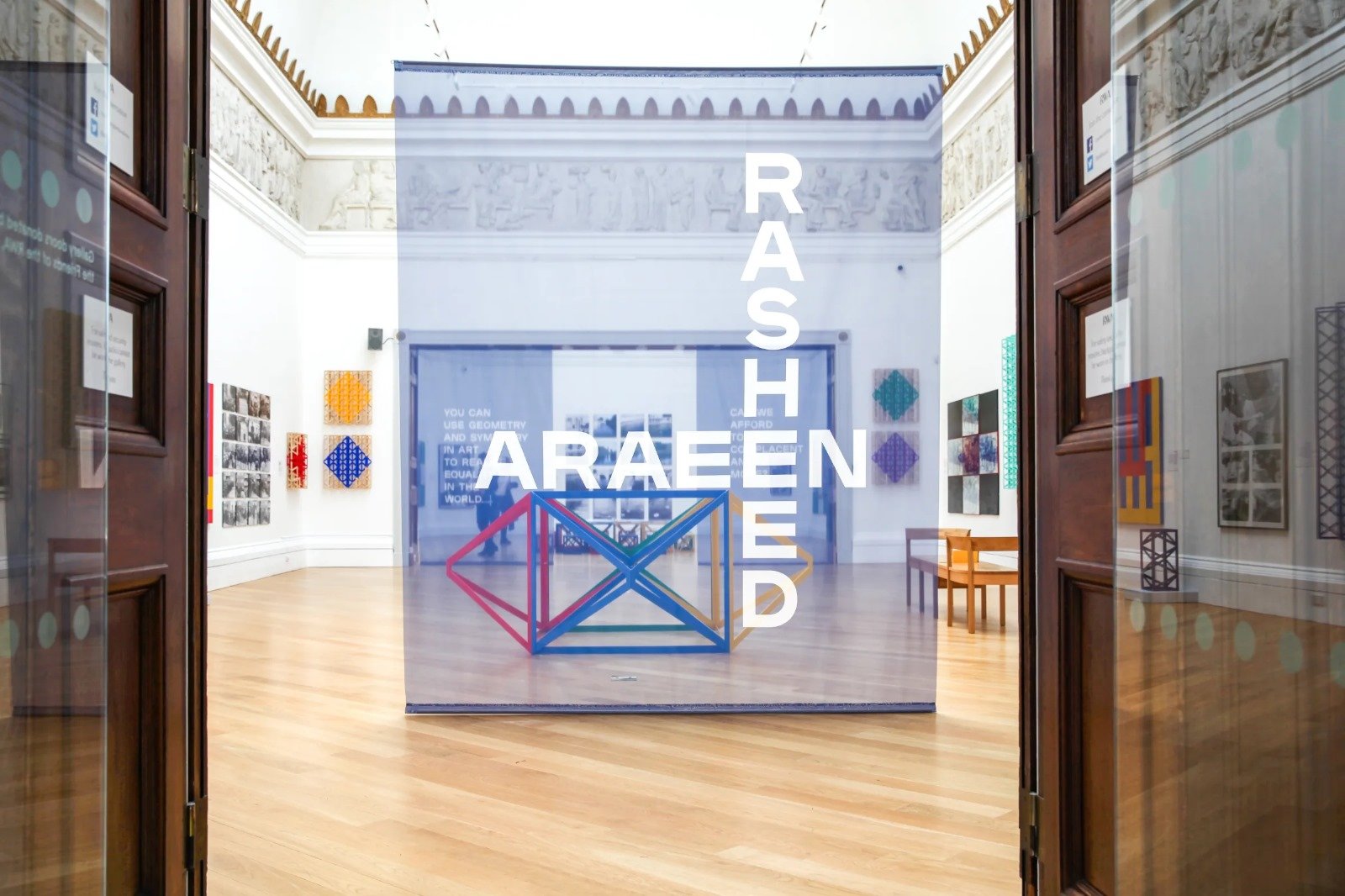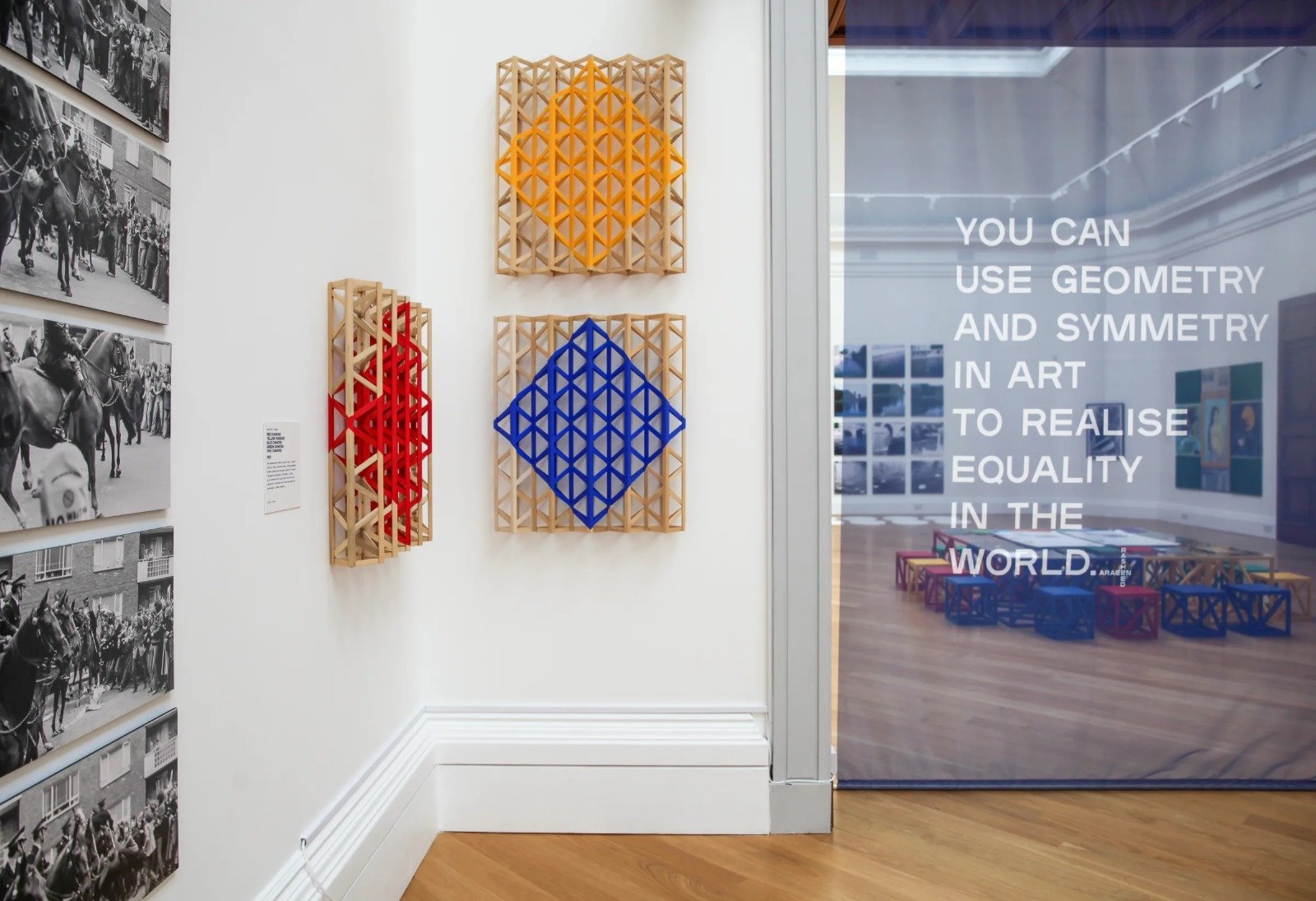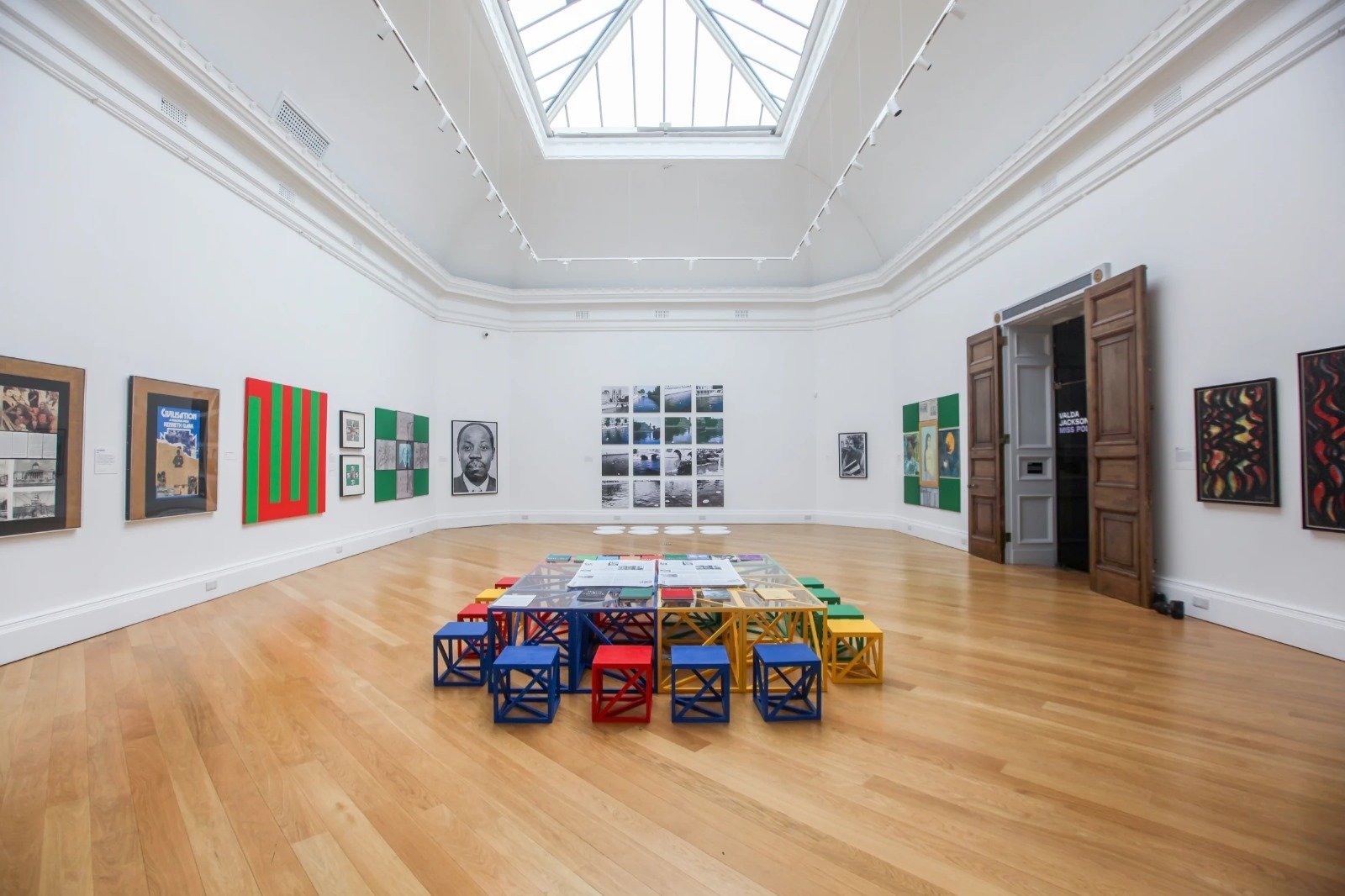Rasheed Araeen: Conscious Forms
Written by Dr. Zehra Jumabhoy, July 2024
The RWA’s Rasheed Araeen: Conscious Forms is an exhibition celebrating the pioneering work of the veteran, London-based Pakistani artist. Araeen’s first show in Bristol, it invites audiences to engage with his bold, innovative creations, re-telling the story of this vital figure in British Modernism. Bristol’s history and politics, makes it an especially appropriate setting for a re-appraisal and celebration of Araeen’s oeuvre.
Conscious Forms goes beyond highlighting Araeen’s artistic achievements; it is not yet another retrospective of his much-celebrated practice. The show critically examines the political context surrounding the development of Araeen’s artistic language, showing how aesthetics and social critique have always been inextricably linked in his work.
If Araeen’s most radical works and pedagogical activities were fashioned in the context of the racial tension of the 1970s and Thatcherite Britain of the 1980s, then today’s post-Brexit nation, where debates on immigration dominate the press, seems the perfect point at which to revisit Araeen’s seminal, socio-politically charged offerings. This exhibition will place Araeen’s early artworks and performances in the context of later sculptural offerings. The latter have increasingly been displayed as formal evocations of Islamic Geometry; abstractions devoid of political content. For instance, Zero to Infinity, whose primary-coloured structures dominated the Turbine Hall at Tate Modern in 2023, invited audiences to ‘play’ with their shape-shifting forms; while the 35-metre high architectural sculptural installation Rhapsody in Four Colours, which permanently resides at the heart of the Aga Khan Centre in London’s Kings Cross, reminds viewers of the Indo-Persian concept of the Charbagh, a quadrilateral garden traditionally separated by waterways that evoke the four gardens of Paradise in the Quran. It is tempting to read these pulsing rainbow-like constructions as merely decorative experiments in colour and form. Conscious Forms argues otherwise.
The show includes Araeen’s delicate semi-abstract paintings of boats from the 1950s and 1960s (made in Karachi), his politically charged photomontages from the 1970s and 1980s and his more recent geometric wall-pieces, including an array of Araeen’s gem-hued, abstract sculptures in the RWA’s daylit galleries. Visitors are encouraged to interact with and rearrange the colourful cubes, forming a central Reading Room, which will showcase copies of Black Phoenix and Third Text, radical art journals that Araeen founded in 1978 and 1987 respectively. This interactive sculptural installation demonstrates how Araeen’s engineering background and his engagement with Islamic geometry and architecture are vital to his investigation of form. Yet, the curators argue that we cannot ignore the post-war British context in which Araeen’s aesthetic language was initially forged. The formal properties of seemingly playful, hard-edged geometric structures recall the cage-like grids of Araeen’s early Cruciform offerings (such as the Green paintings and the mixed media photo and text series of the 1980s, For Oluwale), which boast an overtly activist agenda. By shedding light on the biases inherent in Euro-American art history and Britain’s identity politics, Araeen’s work prompts a re-evaluation of established narratives around ‘inclusivity’, at a moment when these discussions rage in the public sphere.
Curated by Dr Zehra Jumabhoy and Dr Elizabeth Robles, Lecturers in the History of Art at the University of Bristol, Conscious Forms”showcases Araeen’s multifaceted exploration of nation, belonging and British-ness.
To purchase a copy of the publication accompanying Araeen’s 2017 - 2019 touring restropective please follow this link: RASHEED ARAEEN





